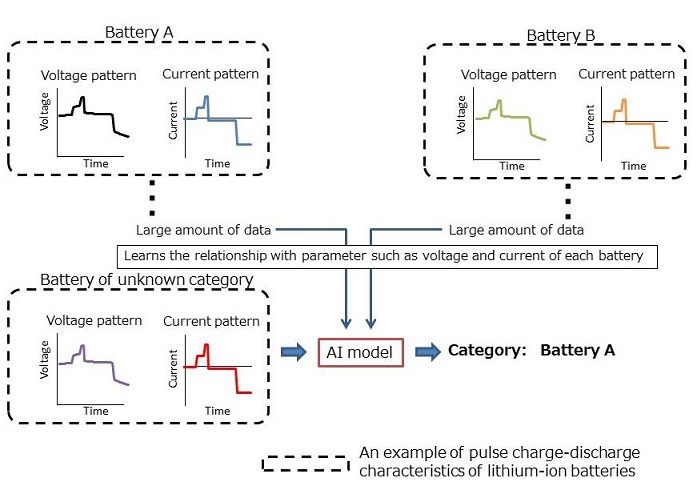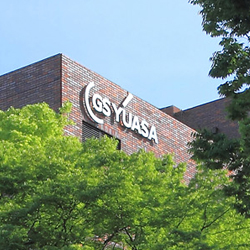GS Yuasa Corporation (Tokyo Stock Exchange: 6674; “GS Yuasa”)and NTT Communications Corporation (President: Tetsuya Shoji; Headquarters: Chiyoda-ku, Tokyo; “NTT Com”) announced that GS Yuasa would start a feasibility experiment to monitor lithium-ion battery status based on artificial intelligence (AI) technology with NTT Com providing the data processing service employing deep learning, a type of AI technology.
The AI in this experiment uses corevo®*1, an AI-related technology of NTT Group.
1. Background
Given the significant improvement in performance in recent years, lithium-ion batteries are widely used in various applications and regions and they have been increasingly adopted for large-scale storage battery systems for mega solar systems and wind power generation. Battery status monitoring so far used assumed relational expressions and thresholds based on parameters collected in regular inspections and automatic measurement such as voltage and current, or was done by experienced operators who would analyze and diagnose the status. If the batteries gain further popularity, the amount of data being handled would increase, which in turn would lead to issues such as increasing the number of operators.
To solve this issue, GS Yuasa and NTT Com have been engaged in the verification of the classification of battery types to achieve battery status monitoring utilizing AI since 2016. In the verification in 2016, NTT Com developed an AI model that classifies battery types from time-series sensor data of battery voltage and current using deep learning, and GS Yuasa implemented additional learning on post-learning AI model and evaluated how classification accuracy changes as the amount of learning data increases. As a result, the company confirmed that it is capable of classifying battery types with extremely high accuracy by distinguishing even minute battery characteristics, leading to the feasibility experiment.
2. Overview of the feasibility experiment
In the feasibility experiment, time-series sensor data such as voltage and current obtained from stationary lithium-ion batteries that composes storage battery system are learnt by AI using deep learning to develop and verify the platform of the system monitoring the battery status. Storage battery system measurement data is collected via network and the big data is analyzed by AI instead of experienced operators.
The status monitoring employing AI technology under development will enable detection, prediction and control of battery status more accurately and efficiently, which in turn will increase safety and reliability. Moreover, it will enable monitoring via network, contributing to smart control of storage battery system.
3. Future development
GS Yuasa aims to realize efficient operation of storage battery system by firmly grasping SOC*2 and SOH*3 of storage battery system at high accuracy and maintaining the status at an optimum level that enables charging and discharging of required electricity in a balanced manner and offer products and services that contribute to global environment and prevention and reduction of disaster. Going forward, the company aims to create various services and new business model together with customers by utilizing AI technology.
NTT Com will work on further accuracy improvement of the AI technology used in the feasibility experiment to detect and predict the status, and expand the scope of application in other manufacturing fields. Further, it will combine the AI technology with services it offers and offer wide-ranged AI solutions optimal for customers.
*1 corevo® is a registered trademark of Nippon Telegraph and Telephone Corporation.
http://www.ntt.co.jp/corevo/e/
*2 State Of Charge: battery’s charge status
*3 State Of Health: Battery’s degradation status
■Image of battery classification evaluation (feasibility experiment) using battery parameter based on deep learning






